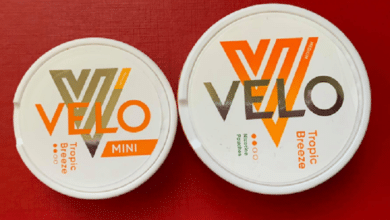The Benefits of Regular Exercise: Enhancing Physical and Mental Well-being

In today’s fast-paced world, where sedentary lifestyles have become the norm, it is essential to prioritize regular exercise to maintain optimal physical and mental well-being. Engaging in physical activities not only helps in maintaining a healthy weight but also offers numerous other benefits, including improved cardiovascular health, enhanced mood, increased energy levels, and reduced stress. This article will explore the multifaceted advantages of regular exercise and encourage readers to embrace an active lifestyle.
The Importance of Physical Exercise
Regular physical exercise is crucial for maintaining overall health and well-being. It positively impacts various body systems, including the cardiovascular, musculoskeletal, and respiratory systems. Engaging in exercise strengthens muscles, improves flexibility, and enhances bone density, reducing the risk of chronic conditions like osteoporosis.
Cardiovascular Health and Fitness
Exercise plays a significant role in improving cardiovascular health. It strengthens the heart muscle, lowers blood pressure, and improves blood circulation. Regular aerobic exercises, such as brisk walking, jogging, or cycling, help in reducing the risk of heart disease, stroke, and other cardiovascular conditions.
Weight Management and Body Composition
Maintaining a healthy weight is vital for overall well-being. Regular exercise aids in weight management by burning calories and increasing metabolism. It helps in building lean muscle mass and reducing body fat, leading to improved body composition and enhanced self-esteem.
Mental Health and Cognitive Function
Exercise has a profound impact on mental health and cognitive function. It stimulates the release of endorphins, which are known as “feel-good” hormones, promoting a positive mood and reducing symptoms of anxiety and depression. Additionally, physical activity enhances cognitive function, memory, and concentration.
Boosting Energy Levels
Contrary to popular belief, exercise actually boosts energy levels instead of depleting them. Regular physical activity improves blood flow and oxygen delivery to the muscles and organs, resulting in increased vitality and overall stamina. It also enhances the efficiency of the cardiovascular and respiratory systems, enabling individuals to perform daily tasks with greater ease.
Stress Reduction and Improved Sleep
Exercise serves as an excellent stress-reliever. It helps in reducing the production of stress hormones like cortisol while stimulating the production of endorphins. Engaging in physical activities also promotes better sleep quality, allowing the body to rest and rejuvenate, leading to increased productivity and a sense of well-restedness.
Disease Prevention and Longevity
Leading a physically active lifestyle significantly reduces the risk of developing chronic diseases such as type 2 diabetes, certain types of cancer, and metabolic disorders. Exercise strengthens the immune system, improves insulin sensitivity, and promotes healthy organ function, contributing to longevity and overall disease prevention.
Social Connections and Community Engagement
Participating in group exercise activities or team sports provides opportunities for social connections and community engagement. It fosters a sense of belonging, promotes teamwork, and enhances interpersonal relationships. Additionally, exercising with others can be motivating and enjoyable, making it easier to stick to a regular exercise routine.
Creating a Balanced Exercise Routine
To reap the maximum benefits of exercise, it is essential to create a balanced exercise routine that incorporates various types of physical activities. This includes cardiovascular exercises, strength training, flexibility exercises, and functional movements. A well-rounded routine ensures comprehensive fitness and minimizes the risk of injury.
Overcoming Common Barriers to Exercise
Many individuals face challenges when it comes to incorporating exercise into their daily lives. Common barriers include lack of time, motivation, or access to fitness facilities. However, by setting realistic goals, finding enjoyable activities, and exploring alternative options such as home workouts or outdoor activities, these barriers can be overcome.
Incorporating Exercise into Daily Life
Finding ways to incorporate exercise into daily life can make it more manageable and sustainable. Taking the stairs instead of the elevator, walking or cycling for short distances, or dedicating specific time slots for physical activity can all contribute to a more active lifestyle. Small changes gradually add up and make a significant impact on overall health.
Maximizing the Benefits of Exercise
To maximize the benefits of exercise, it is important to maintain consistency and progression. Gradually increasing the intensity or duration of workouts, trying new activities to keep it interesting, and monitoring progress can help individuals achieve their fitness goals and experience continuous improvements in physical and mental well-being.
Setting Realistic Goals
Setting realistic goals is essential for long-term success. Whether it’s aiming to run a certain distance, lift a specific weight, or improve flexibility, setting achievable targets helps maintain motivation and provides a sense of accomplishment. It is important to celebrate milestones along the way and adapt goals as necessary.
Staying Motivated and Consistent
Staying motivated and consistent with exercise can be challenging at times. It is crucial to find activities that align with personal interests and preferences. Engaging in exercises that are enjoyable and incorporating variety into the routine can prevent boredom and maintain motivation. Additionally, having an exercise buddy or seeking professional guidance can provide accountability and support.
Conclusion
Regular exercise offers a plethora of benefits for both physical and mental well-being. By engaging in various forms of physical activity, individuals can improve cardiovascular health, manage weight, boost energy levels, reduce stress, prevent diseases, and enhance social connections. Embracing an active lifestyle is a choice that can lead to a happier, healthier, and more fulfilling life.


